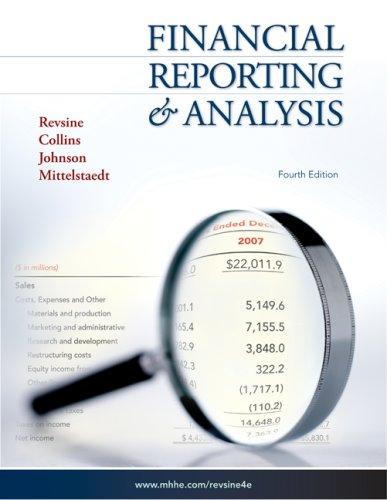1. Suppose David Johnson received a base salary (before personal income taxes) of ($800,000) in 1993. His...
Question:
1. Suppose David Johnson received a base salary (before personal income taxes) of \($800,000\) in 1993. His personal tax rate was 35% that year, and the year-end value of his Campbell stock was \($1.6\) million. How much of his after-tax salary for 1993 would go toward buying more stock in the company?
2. What are the advantages and disadvantages of Campbell’s stock ownership plan?
3. Do you think that institutional investors such as pension portfolio managers and mutual fund managers would favor or oppose Campbell’s plan? Why?
CAMPBELLS SOUP EXECUTIVES MUST OWN FIRM’S STOCK Campbell Soup Co. said Tuesday it is introducing a stock ownership plan for its chief executive and about 70 other senior executives.
Under the plan, David Johnson, president and chief executive officer, is required to hold three times his 1992 base salary of \($757,500\) in shares by the end of 1994. He must maintain the three-times-earnings stake every year until he leaves the company. Executive or senior vice presidents are expected to buy and hold at least two times their annual base salary by 1994.
Corporate vice presidents who have been with the company for three or more years will buy and hold the equivalent of one year’s base salary. Senior executives will buy shares equal to at least one-half their annual salary. All corporate officers must hold at least 1,000 shares of Campbell stock by the end of this year.
Step by Step Answer:






